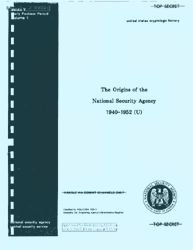In contemporary usage, the term ‘bardic order’ is used somewhat confusingly for a group whose members comprised both the ranks of the file (poet, pl. filid), and the ranks of the bard (bard, pl. baird). The first term etymologically means ‘seer’, cf. Welsh gweled ‘to see’. In the interest of clarity, Gaelic terms will be preferred here.
From the earliest times, Irish sources evidence a tension between the fiHd and the baird, with the filid consistently marking themselves off from the baird on the basis of their greater learning. The spread of literacy underlay the first reorganization of the ranks of the filid that is clearly discernible in Irish sources. The form that this reorganization took was inspired by the successful establishment of a seven-grade scheme for the ranking of the clergy; this scheme became fixed by the 8th century and is described in various law tracts (see law texts), including Bretha Nemed and Uraicecht na Riar (The primer of the stipulations). The names of the seven grades, in order form highest to lowest, were ollam, anruth, cli, cano, dos, mac fhuirmid, and (again) cano. These grades represent the successive stages through which a file might progress in the course of his career. Ollam, present-day Irish ollamh, has come to mean ‘professor’.
In the law tracts mentioned previously, the baird are largely distinguished from the filid in not having a scholarly training: Instead, their reputation is said to rest on an innate talent for poetry. They are portrayed as belonging to a separate caste from that of the upwardly mobile filid. Uraicecht na Riar states that an ollam will know 350 tales and be competent in all historical science (coimgne) and Irish jurisprudence (brithemnacht fhenechais).
The persistent efforts of the filid to enhance their own status at the expense of the baird eventually resulted in the primary meaning of bard—namely, ‘panegyric/ lyric poet’—being expanded to accommodate the meanings ‘illiterate poet’ and ‘oral-performance poet’.
By the Early Modern period (c. 1200-c. 1600), the term bard is used more often when speaking of the lowest-ranking members of the professional poet’s retinue than of the gifted high-class amateur. This development is evidenced in both English-language and Irish-language sources. The rich detail found in Old and Middle Irish metrical and legal tracts on the individual grades of the filid and the baird is not replicated in Modern Irish sources. Some of the distinctions must have been obliterated in the sweeping changes that occurred in the wake of the 11th - and 12th-century church reforms and of the coming of the Normans.
Mairin Ni Dhonnchadha




 World History
World History









